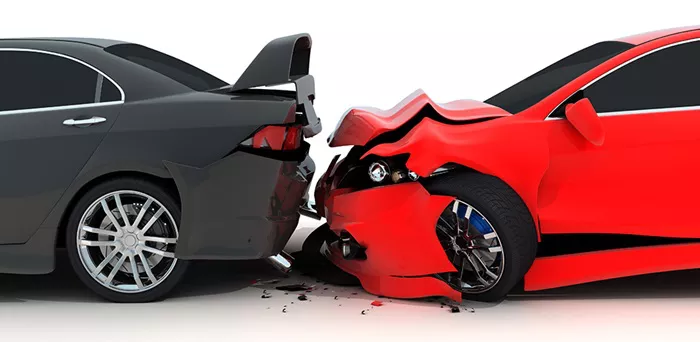Comprehensive car insurance, often referred to as “comp” coverage, is a type of auto insurance policy that provides financial protection against physical damage to your vehicle that results from non-collision events. While liability insurance covers damage to other vehicles and property in an accident where you’re at fault, comprehensive insurance covers damage to your own vehicle caused by incidents such as theft, vandalism, natural disasters, falling objects, and animal collisions.
Comprehensive car insurance typically covers:
Theft: If your car is stolen, comprehensive insurance can help cover the cost of replacing it.
Vandalism: Damage to your vehicle caused by vandalism, such as graffiti or slashed tires, is usually covered.
Natural Disasters: Events like floods, earthquakes, hurricanes, and wildfires can cause extensive damage to vehicles, and comprehensive insurance provides coverage for repairs or replacement.
Falling Objects: Damage caused by falling objects like tree limbs, rocks, or debris is covered under comprehensive insurance.
Animal Collisions: If you hit an animal while driving, comprehensive coverage can help pay for the repairs to your vehicle.
Now that we understand what comprehensive car insurance is and what it covers, let’s delve into the average cost of this type of insurance, the factors influencing these costs, and strategies for reducing them.
Average Cost Overview
The cost of comprehensive car insurance varies depending on several factors, including your location, driving history, age, gender, vehicle make and model, and the level of coverage you choose. Nationally, the average cost of comprehensive car insurance is around $134 per month, according to recent data. However, this figure can fluctuate significantly based on where you live. For example, residents of urban areas or regions prone to severe weather may face higher premiums due to increased risk factors.
In addition to regional differences, the type of vehicle you drive also plays a significant role in determining your insurance rates. High-value or luxury vehicles typically have higher insurance premiums due to their increased repair and replacement costs. On the other hand, older vehicles or those with advanced safety features may qualify for lower rates.
Factors Affecting Cost
Several factors influence the cost of comprehensive car insurance:
Driver’s Age and Driving History: Younger drivers and those with a history of accidents or traffic violations are considered higher risk and may face higher insurance premiums.
Vehicle Make and Model: The cost to repair or replace your vehicle in the event of a covered incident affects your insurance rates. Newer, more expensive cars typically have higher premiums.
Level of Coverage: Opting for higher coverage limits or additional features, such as rental car reimbursement or roadside assistance, will increase your insurance costs.
Deductible Amount: Choosing a higher deductible lowers your monthly premiums but increases your out-of-pocket expenses in the event of a claim.
Cost Comparisons
To illustrate how different demographics and factors affect insurance costs, let’s compare average premiums for various scenarios:
Age: Young drivers under 25 generally pay higher premiums compared to older, more experienced drivers.
Gender: While gender-based pricing is prohibited in some states, in others, statistics show that male drivers tend to have higher accident rates and may therefore pay more for insurance.
Vehicle Type: Luxury cars and sports vehicles typically have higher insurance costs due to their increased risk of theft and higher repair costs.
Geographic Location: Residents of urban areas or regions prone to severe weather events, such as hurricanes or tornadoes, often pay more for comprehensive insurance due to increased risk.
Tips for Reducing Costs
There are several strategies you can employ to lower your comprehensive car insurance premiums:
Maintain a Clean Driving Record: Safe driving habits can lead to lower insurance rates over time.
Bundle Policies: Many insurance companies offer discounts for bundling auto, home, and other insurance policies.
Install Anti-Theft Devices: Installing devices such as alarms, immobilizers, or GPS tracking systems can deter theft and qualify you for insurance discounts.
Take Advantage of Discounts: Inquire about available discounts for things like safe driving, low mileage, or completing defensive driving courses.
Insurance Provider Comparison
When shopping for comprehensive car insurance, it’s essential to compare rates from multiple providers to find the best deal. Online comparison tools or working with an independent insurance agent can help you explore your options and identify potential savings.
Policy Limitations and Exclusions
While comprehensive car insurance provides extensive coverage, it’s essential to be aware of its limitations and exclusions. Common exclusions may include:
Mechanical Failures: Damage resulting from wear and tear or mechanical breakdowns is typically not covered.
Personal Belongings: Items stolen from inside your vehicle may not be covered under comprehensive insurance. Consider separate coverage for personal belongings.
Custom Equipment: Aftermarket upgrades or modifications may require additional coverage beyond standard comprehensive insurance.
Acts of War: Damage caused by acts of war or terrorism may be excluded from coverage.
How to Get a Quote
To get an accurate insurance quote for comprehensive car insurance, you’ll need to provide specific information to the insurance company, including:
Personal Information: Name, address, date of birth, and driver’s license number for all drivers to be insured.
Vehicle Details: Make, model, year, VIN (Vehicle Identification Number), and mileage of the vehicle to be insured.
Driving History: Details of any accidents, tickets, or claims within the past few years.
Coverage Preferences: Desired coverage limits, deductible amount, and any additional features or riders.
You can obtain quotes online through insurance company websites or by contacting an insurance agent directly. Be prepared to provide accurate information to ensure you receive an accurate quote tailored to your needs.
Conclusion
Comprehensive car insurance offers essential protection against a variety of non-collision events that can damage your vehicle. By understanding the factors that influence insurance costs, comparing rates from different providers, and taking advantage of available discounts, you can secure the coverage you need at a price that fits your budget.
FAQs about Car Insurance
1. How much is car insurance in Hong Kong?
The cost of car insurance in Hong Kong varies depending on several factors including the type of coverage, the car’s make and model, the driver’s age and driving history, and the insurer. On average, third-party insurance can range from HKD 2,000 to HKD 5,000 per year, while comprehensive insurance can range from HKD 5,000 to HKD 20,000 per year. It is advisable to get quotes from multiple insurance providers to find the best deal.
2. Which type of car insurance is the cheapest?
The cheapest type of car insurance is typically third-party insurance. This basic coverage is the minimum required by law and only covers damage to other people’s property and injuries to others in the event of an accident. However, it does not cover damage to your own vehicle. Due to its limited coverage, third-party insurance tends to be significantly cheaper than comprehensive insurance, which offers broader protection including theft, vandalism, and damage to your own car.
3. Who normally has the cheapest car insurance?
Generally, drivers who are older, have a clean driving record, and drive less expensive or lower-risk vehicles tend to receive cheaper car insurance rates. Additionally, those who have taken defensive driving courses or have bundled their car insurance with other policies, such as home insurance, might also benefit from lower premiums. Young drivers, those with a history of accidents or traffic violations, and those driving high-performance or luxury cars usually face higher insurance costs.
4. How much is car insurance for 2 cars per month in the USA?
The cost of insuring two cars in the USA per month can vary widely based on factors such as the state you live in, the types of cars being insured, the coverage levels, and the driving histories of the individuals insured. On average, the monthly cost for insuring two cars can range from $150 to $400. Opting for multi-car discounts offered by many insurers can help reduce the overall premium. To get an accurate estimate, it’s best to obtain quotes from several insurance companies and consider any available discounts.
You Might Be Interested In




















